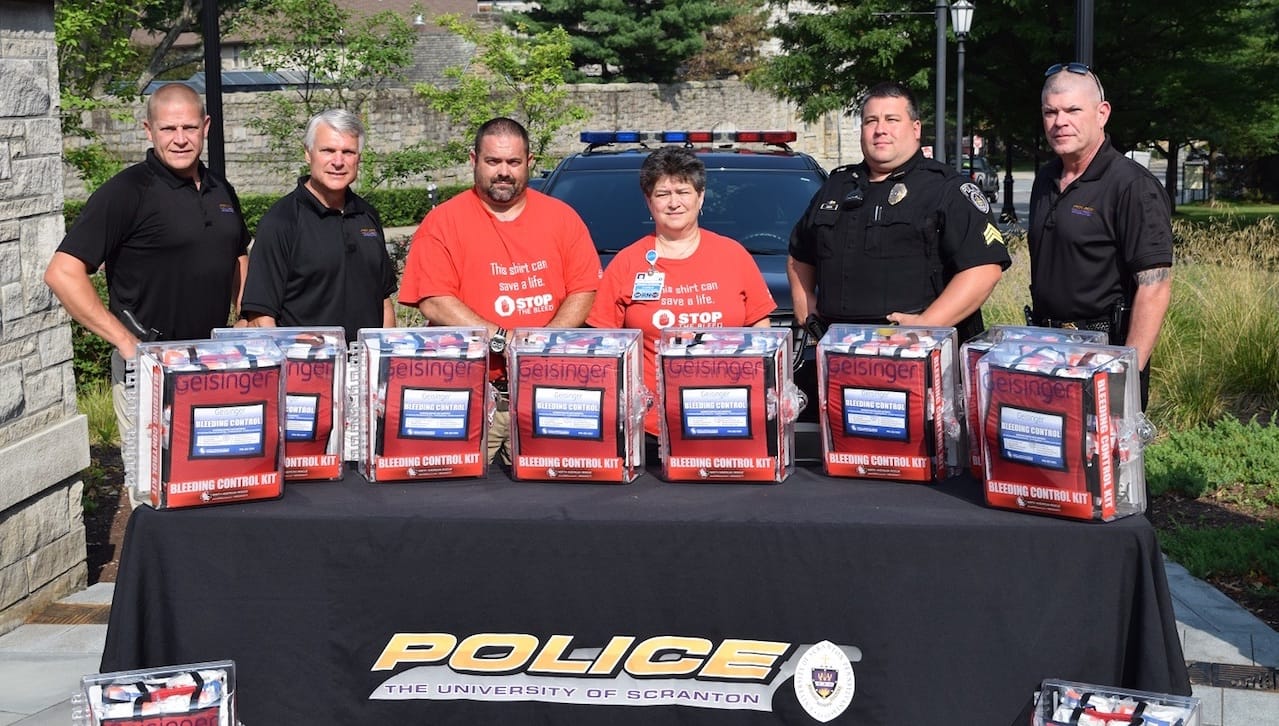Geisinger Gives Stop the Bleed Kits to University

Through engagement in the national Stop the Bleed program, Geisinger trauma services has trained more than 10,000 people on how to battle blood loss. Now, The University of Scranton is the most recent recipient in Geisinger’s initiative to provide more than 2,300 bleeding-control kits to first responders and residents in northeast and central Pennsylvania.
Kathryn Bommer is trauma education outreach coordinator at Geisinger Community Medical Center (GCMC) in Scranton, and she met with members of The University of Scranton Police Department recently to deliver 10 Stop the Bleed kits to the University’s campus.
Containing plastic gloves, gauze, tourniquets and easy-to-follow instructions, the bleeding-control kits are designed to be used by anyone to help control bleeding during a traumatic incident. According to the National Trauma Institute, 35 percent of fatalities occur due to blood loss before victims arrive at a hospital.
Bommer, an experienced trauma nurse and pre-hospital registered nurse, stressed the value of having a bleeding-control program in place at an academic institution.
“We’re preparing for the ‘what-if’ moments,” Bommer said. “We want to keep students, visitors, staff and faculty as safe as possible with ongoing training we offer to police. We’ve done Stop the Bleed for three years, and now we’re providing the tools to supplement the education they’ve received at other venues.”
Launched as a collaboration between the Department of Homeland Security, the White House and other agencies, Stop the Bleed trains ordinary citizens – and potential bystanders – to help during a severe-bleeding incident before medical and emergency professionals arrive on scene.
“We are grateful for Geisinger’s support for this initiative. The program will provide a good opportunity for students to learn more about safety and emergency response training,” said University of Scranton Chief of Police Don Bergmann. The bleeding-control kits will be placed near automated external defibrillators (AEDs) at locations throughout the campus. The university will offer training sessions for students, faculty and staff on the use of the kits later this summer and in the fall semester.
Geisinger trauma services offers free Stop the Bleed classes to organizations throughout the year. Geisinger’s Stop the Bleed program is a joint effort of Geisinger emergency medicine, trauma services, trauma outreach, Life Flight and Geisinger EMS.
To learn more about Stop the Bleed, contact Geisinger at stopthebleed@geisinger.edu.






